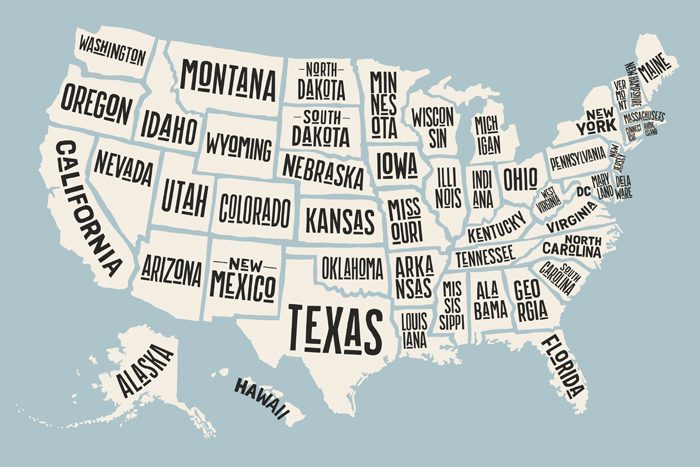Workers’ Comp and Paid Leave Legislative Updates in the Midwest

Midwestern states passed a variety of bills in 2019 that will have an affect on the workers’ compensation industry.
New legislation in states from Minnesota to Kentucky will address slips and falls, prescription drug formularies and the amount of burial expenses an employer is liable for, among other issues.
A recent webinar from the Disability Management Employer Coalition (DMEC) dove into all the legislative actions regarding workers’ compensation and paid leave in the Midwest that employers need to know about.
In Workers’ Comp
Illinois
Illinois passed several pieces of legislation that will affect workers’ comp.
The first bill, Senate Bill 1596, amends the state’s Workers’ Compensation and Occupational Diseases acts by removing the 25 year statute of repose for claims alleging occupational injury and three year statute of repose for occupational diseases.
The bill would essentially allow an employee or their heirs to bring a civil suit against employers.
It was introduced to reverse the ruling Supreme Court’s 2015 decision in Folta v. Ferro Engineering, which held that if an occupational injury or disease first presents after the statute of limitations set forth in the state’s workers comp and occupational diseases acts, than the employee’s action is barred under exclusive remedy.
House Bill 2301 requires that state regulatory boards impacting workers have a representative from a union recognized by the National Labor Relations Act. This will affect three boards, including the state’s Workers’ Compensation Commission.
“It is expected that future commissioners may be more favorable to labor unions,” said Scotty Benton, vice president of workers’ compensation practice, Sedgwick.
Medical e-bill regulations have also been adopted by the state. This bill includes fines for payers who fail to comply with e-billing regulations.
In addition to these laws, the state has several pieces of pending legislation that will affect prescription drug use.
House bill 2795 would introduce a prescription drug formulary for the state and house bill 2794 would amend how the state’s workers’ compensation act handles custom compound medications.
Indiana
Indiana’s house bill 1182 increases the burial expenses payable by the employer in cases of deaths caused by a workplace accident or disease from $7,500 to $10,000.
The bill specifies that an employee who leaves work to serve as a volunteer firefighter or emergency medical services provider will be considered an employee of the firefighting unit while performing those duties.
Iowa
Slips and falls are put in the hot seat in Iowa’s senate file 507.
The law states that personal injuries due to idiopathic or unexplained falls from a level surface onto that same surface are not compensable under workers’ compensation laws.
Kentucky
Kentucky’s house bill 202 updates the state’s formulary and adds change of address form requirements.
Under the new law, the claimant, employer and those responsible for medical payments must notify the Department of Workers’ Claims in writing of any physical, mailing or email address changes for the claimant. Documents must be submitted either through the mail or they can be scanned and emailed.
Minnesota
Minnesota added a rehabilitation invoice penalty warning to its state workers’ comp policies.
Under this new regulation, workers may be eligible for vocational rehabilitation services if they need help returning to work after an injury and if their employer cannot meet their work restrictions.
Claims administrators have 30 days to pay or deny rehabilitation services. If they do not meet this deadline, they could be fined up to $2,000.
Nebraska
Immigrants and their dependents will be affected by the changes to Nebraska’s workers’ comp laws.
Legislative bill 418 states that if a workplace injury results in a death, the consular officer of the nation in which the employee is a citizen is regarded as the sole legal representative of any dependents residing outside of the U.S.
Prior to final settlements, non-resident dependents may file with the Nebraska Workers’
Compensation Court a power of attorney designating any suitable person residing in the state to act as attorney.
In addition to these changes, the bill also states that service providers, collection agencies and creditors can not attempt to collect a debt from an injured worker or their spouse for treatment of a work-related injury if the matter is pending in the Nebraska Workers’ Compensation Court.
In Paid Leave
Rather than covering state-by-state legislative updates, the webinar focused on two opinion letters from the Department of Labor that are expected to have an affect on FMLA.
The first letter, FMLA2019-3-A, was issued on September 10, 2019. This letter rules that an employer cannot delay designating qualified paid leave as FMLA.
Employees, in other words, may not use their other paid leave before using FMLA if their absence falls under FMLA.
The second letter, FMLA2019-2-A, determines that an employee’s need to attend a school meeting to discuss their Individualized Education Program (IEP) of their special needs child is covered under FMLA. This letter was issued in August of 2019.
Trends to Watch
Prescription Drugs: Following national trends, several states in the Midwest have either passed or attempted to pass prescription drug formularies.
Kentucky’s prescription drug formulary became effective in 2019 and Nebraska tried and failed to pass legislation that would have required the state’s workers’ compensation court to adopt a prescription drug formulary. Illinois has formulary legislation pending.
Formularies are the only hot topic related to prescription drugs, however. Opioid litigation has also taken center stage in the Midwest.
In Ohio, several drug companies reached a $260 million settlement with two counties in order to avoid the first federal opioid trial.
Medical Marijuana: In addition to prescription drugs, medical and recreational marijuana is also getting attention in the Midwest.
In Illinois, senate bill 1438 allows recreational marijuana use for people over 21.
Kentucky, on the other hand, introduced legislation that would have prevented workers’ compensation carriers and self-insured employers from paying for medical marijuana.
This did not pass. &

Click here for updates in the Northeast, South or West.








